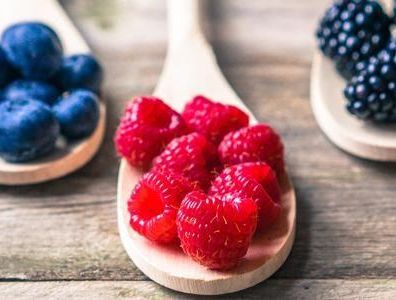Best Reasons for Dairy Detoxing on Holiday


Going dairy free is advised by many nutritionists, but there is still a lot of confusion as to why a dairy free diet is good for you
For many years, dairy products have been promoted in the Western world as not only healthy but also essential for growth and bone health. Most of us are used to having milk in the fridge for tea or coffee and for putting on the morning cereal. We consume masses of yoghurt, cheese, butter and cream – try finding a sandwich that doesn’t contain cheese or butter or a child’s lunch box that doesn’t have a yoghurt or a cheese straw in it. It wasn’t that long ago that all school children were given milk to drink each day and in many places milk floats still deliver milk to the doorstep. Dairy farming is the single largest agricultural sector in the UK and is worth around 3.8 billion. But are dairy products actually good for us and should we cut out these products altogether when on a wellness journey?Animal milk only became part of the human diet about 10,000 years ago
A relatively short time in evolutionary terms. Milk is made up of various parts including water, lactose which is a carbohydrate, casein which is a protein and fat. The human body wasn’t set up to digest milk meant for the rearing of other mammals and we commonly see adverse reactions in response to one or more of the parts that can be found in milk. The most commonly known reaction is to the lactose in milk- it is estimated that 75% of the world’s population has lactose intolerance. But those that have an allergy or intolerance to dairy are often reacting to the casein or protein part of the milk. This can result in inflammation leading to health issues including IBS, joint pain, sinus and allergy problems as well as skin conditions such as eczema, acne and rosacea. Excessive consumption of dairy has also been linked to Type 1 diabetes, asthma, arthritis and cancer in the Western world.A simple blood test can ascertain a person’s ability to tolerate dairy but even without a known allergy should we really be consuming so much and on such a regular basis?
In modern intensive farming, dairy cows aren’t usually fed grass and many are kept inside for the whole of their lives. Not surprisingly, the milk they produce has a very different make up to the milk they would produce naturally. Antibiotics and hormones are also often given to dairy cows and these pass into the milk, along with pus cells from the all too prevalent mastitis or inflammation of the udder tissue. And yes, we consume all of that!5 x Tips for going dairy free
For those who can tolerate dairy it’s always better to choose organic products from grass fed herds. The process involved in making yoghurt, butter and ghee also make these much better sources of dairy than drinking milk straight up. However, it may be better to try to incorporate some dairy alternatives when trying a dairy detox to see how you feel.1. Calcium is found in many foods e.g. green leafy vegetables, chickpeas, sesame seeds, beans, tofu. We also need Vitamin D to absorb it so get some sunlight or better still ask your GP for a Vitamin D test and take a supplement if your levels are low.
2. Try using milk alternatives such as nut milks, rice milk or coconut milk for cooking or for eating cereal or porridge. I use Koko dairy free and it even works well in tea!
3. Use avocado in place of butter on bread. It’s delicious on toast with a splash of apple cider vinegar.
4. Avoid added cream in soups – check the labels and go for diary free or better still whizz up your own with blended vegetables and stock.
5. Try coconut yoghurts – but be careful, they are seriously delicious…
We hope this article has helped to shed some light on the health benefits and drawbacks of going dairy free and given you an insight into why so many of the best wellness and spa holidays include a dairy detox. If you’d like to find out more about the detox holidays which we have on offer, you can take a look here.







